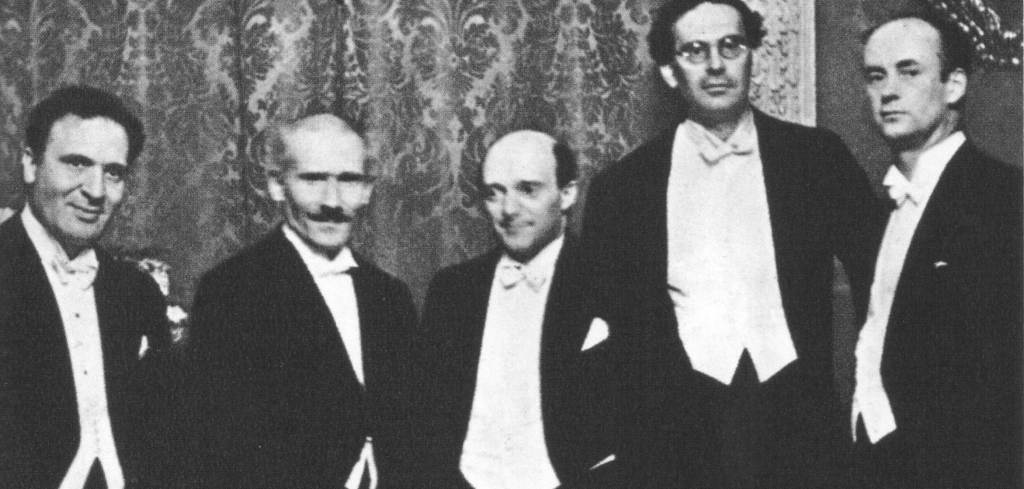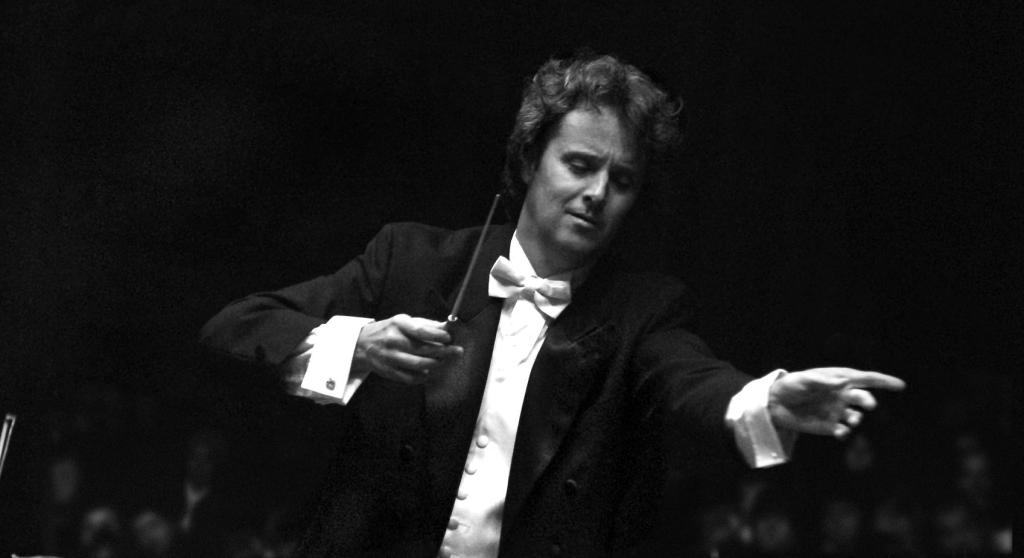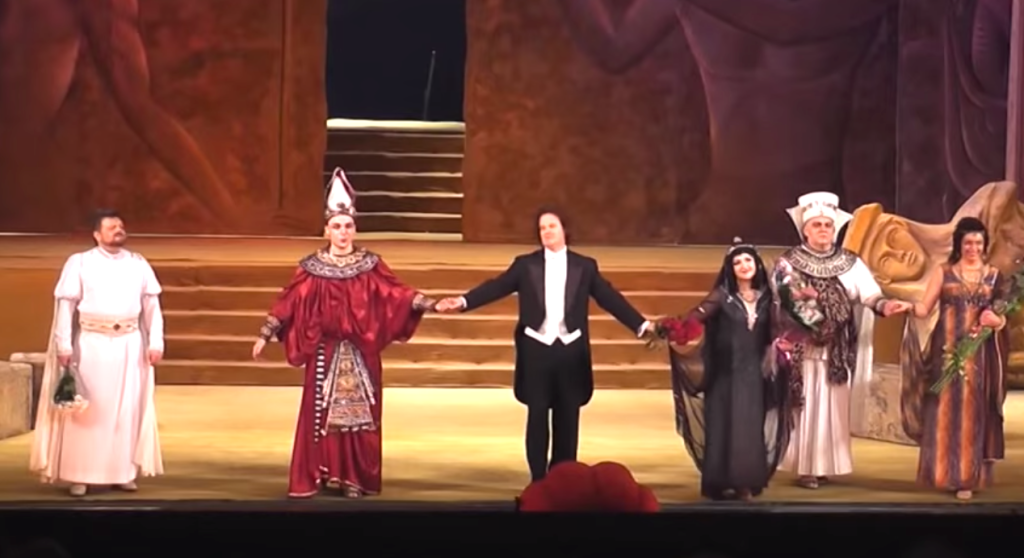Hobart Earle
Artistic Director and Principal Conductor, The Odessa Philharmonic Orchestra
A man of the world, Hobart was born to and raised by American parents in Venezuela. He went to boarding school at the Gordonstoun School in Scotland, founded by Kurt Hahn, graduated from Princeton University in the United States, and studied conducting at the Academy of Music in Vienna. From a very early age, Hobart took to heart Kurt Hahn’s vision of the world, “That each of us has more courage, more strength, and more compassion than we would ever have fathomed.” Hahn’s calling in life was to help people around the world realize this truth about themselves. “Two passions are not likely to die out of the world, the love of country and the love of freedom. They can be kept pure by one thing, which can tame yet not weaken them: tender love of all mankind. “
In 1991, a year after traveling to Moscow, St. Petersburg, and Odessa, Hobart moved from Vienna, Austria to become the artistic director and principal composer of the of the Odessa Philharmonic Orchestra. With a $50 a month salary, a poorly funded orchestra in a dilapidated post-Soviet city, Hobart was determined to build up the 54-year old beleaguered orchestra playing on sub-par instruments in cold and near empty music halls. Navigating the Soviet-styled bureaucratic system, learning the Russian and lesser spoken Ukrainian languages, and charming those who looked down on him for being an outsider, Hobart raised funding, won over the musicians, and filled the concert halls. Today the orchestra is considered among the finest in the world.
When Hobart first traveled to Odessa in 1990, he fell in love with Ukraine’s southern port city and its history. Founded in the late 18th century by Catherine the Great, it is noted for its distinctive, beautiful setting and major trading hub on the Black Sea. For centuries, it has been the home of a diverse, multi-cultural and multi-ethnic population. Thriving as a cultural and arts center during Czarist Russia, and to some extent during the more sober Soviet years, Odessa today is a vibrant city with a light-hearted spirit–it is called the “Capital of Humor.” Odessa watches with concern as its neighbors in Crimea and Donetsk are ravished in the conflict between Ukraine and Russia. It is difficult not to be affected by this conflict, and it is through music that Hobart responds, urging peace and tolerance.
Hobart believes deeply in the power of music and its language that bridges people of different cultures and nations. For Hobart, music is the language of peace. He draws from the example of a concert he conducted in September 2014 at Dom Muziki in Moscow—an all-American program, including “Gershwin’s American in Paris “ and “Rhapsody in Blue.” Noting that the performance was a somewhat surreal experience given the timing of the concert when tensions were high between Ukraine and Russia, as well as between Russia and the West, Hobart said the music was transcendent; Russians love the melodious nature of Gershwin.
Ukrainians face issues of language, identity, and the dilemma of whether to stay or leave their country. These are deeply concerning issues. The struggle to maintain their distinct language and identity for Ukrainians has a long history, dating back to Czarist Russia and continuing through the Soviet era and today. However, repressing language does not make Ukrainians feel more Russian. Today many Ukrainians speak Russian yet identify themselves with Ukraine not Russia. When asked about the dilemma for an artist or anyone choosing to stay or leave their country when suffering the abuses of oppression, repression, and conflict, Hobart draws examples from history during the Nazis era.
Erich Kleiber was a renowned conductor at the Berlin State Opera when the Nazis came into power. When Alban Berg’s new opera “Lulu” was composed, it was designated by the Nazis as “degenerate” and forbidden. Kleiber’s American wife, Ruth famously told Goering that her husband would conduct excerpts from the Austrian composer Alban Berg’s new Opera “Lulu” whether Göring liked it or not. Erich Kleiber conducted the “Lulu Suite” at Berlin’s Staatsoper in December 1934. Goebbels used this event as a means of propaganda to show how tolerant the National Socialists were of modernist music. After the concert, knowing that the Nazis would not allow him to conduct “Lulu” or other “degenerate” music again, Kleiber quit the opera in protest and moved with his wife to South America. Hobart explained that when the government tried to persuade Kleiber to return to Berlin, he replied, “If I do so, my first concert will be an all-Mendelssohn program.”
While under contract with La Scala in Milan during the time Mussolini enacted the anti-Semitic legislation, Kleiber sent a famous telegram to Milan in 1938, “I learn at this time that the Teatro alla Scala has closed its doors to your compatriot Israelites. The music is made for all as the sun and air. Where you deny to human beings this source of consolation so necessary in these times so hard and this only because they belong to another race or religion, I can’t work either as a Christian or as an artist. I must therefore ask you to consider null and void my contract, despite the pleasure I had in directing in this magnificent theater that recalls the most noble traditions of Italy.”

Another revered conductor stayed in Germany, though disapproved openly about the Nazis treatment of the Jews. Wilhelm Furtwängler, the principal conductor of the Berlin Philharmonic (1922-1945) protested directly to Adolf Hitler. Hobart refers to 1933 when Furtwängler demanded and received a meeting to meet with Hitler to express his protest against the discrimination towards Jewish art and Jewish music. It ended in a shouting match and Furtwängler walked out of the meeting very angry and frustrated. According to Hobart, Furtwängler said, “This isn’t just anti-Semitism, this is discrimination against culture and spirituality in all forms.” Furtwängler resisted the Nazis in every way, including their desire to bring him into the Nationalist Socialist Party. At another meeting with Hitler around 1935, well before the concentration camps, Hitler said to Furtwängler, “We will find a camp for you.” To which Furtwängler answered quietly, “Well, I’ll be in very good company.” Hitler was so angry at this remark that he stormed out of the room.
Though a foreigner living in Ukraine, Hobart was honored in 2013 as the first westerner to be named “People’s Artist of Ukraine,” a prestigious government award. In December 2014, Hobart was one of 30 recipients of Musical America’s Professionals of the Year: Profiles of Courage. Those selected had “taken a risk, stepped up for the cause, spoken out where others were silent—all to the measurable benefit of their respective organizations and/or the field.” It is easy to understand why Hobart was honored with this award.
In 2014, Hobart conducted extraordinary performances. On February 21, 2014 he conducted Verdi’s “Aida” in Donetsk’s Donbass Opera house, which was the night before President Yanukovich fled the official presidential residence in Kiev. Nobody present—either on stage or in the audience—had any idea this would be the final performance in the theater during the presidency of Yanukovich, who was from Donetsk. Nor did anyone know that this performance marked the end of an era. Sadly, the opera house has closed and its storage facility, which housed the beautiful opera sets (including “Aida”), was destroyed.
A month later on March 22, shortly after Russia’s annexation of Crimea, Hobart conducted a “peace and brotherhood” flash-mob performance of Beethoven’s 9th (“Ode to Joy”) in the beloved Odessa’s Privoz Fish Market. The powerful performance expressing Ukrainian unity went viral on YouTube, influencing other orchestras across Ukraine to perform the same piece across the country on the last Sunday in March.
A few months later, the week of June 13th, Hobart directed the Black Sea Music Fest, an annual festival of classical music in Odessa. This festival exemplified how “music is a unique tool to unite people in times of difficulty.” While the tensions were high between Ukraine and Russia, here the Odessa-based orchestral festival to Rachmaninoff featured Russian artists such as guest conductor Mikhail Pletnev and pianist Konstantin Lapshin. Performances in Odessa and elsewhere in Ukraine were canceled because many artists scheduled to perform were Russian.
Since 1992, Hobart has toured with the Odessa Philharmonic and guest conducted several orchestras in Europe, Russia, Asia, and the United States, including Carnegie Hall. He conducts a wide range of music including Gershwin, Beethoven, Mahler, Strauss, Stravinsky, Tchaikovsky as well as Ukrainian composers such as Mykola Kolessa, Myroslav Skoryk, Yevhen Stankovych, and Reinhold Gliere, many of which can be found either on CD or video.



.My name is Larry Weisz. I describe myself as a very proud “Practising Jewish ‘cellist” and passionate aficionado of classical music although very much in an amateur way and fashion. For one thing I did not begin my ‘cello lessons until age twenty [with the much younger Chrystia Kolessa, sister of Lubka the world reonwed pianist.] Chrystia died tragically at a very young age. I have known the descendants of the Kolessa family and have recently accessed through YouTube Mykola Kolessa’s magnificent compositions. I am deeply touched and moved by extensive story on Maestro Earle. I too adore and have a very personal connection with the music of George Gershwin whose first love was I believe was Pauline Heifetz the sister of the great violinist Jascha Heifetz, Jascha’s first cousin, whom I know right here in Ottawa, Canada He is, Philip Cheifetz, MD, who plays a very important role in my life.
In conclusion : God bless the Kolessa name and family and its descendants!
Long live Philip Cheifez , MD to whom I am deeply indebted!
Long live Ukraine and Volodomyr Zelensky who makes me oh so proud to be Jewish! Such courage has he!
Long live Beethoven’s Ode To Joy And Freedom! And to those who love both.
Long Live The Judische Lulturbund Project! In the name of all things Holy. And Kaddish.”
Larry Weisz
Thank you so much. I am very touched by your comments and good wishes.
Dear Gail Prensky,
I just happened upon your good wishes to me about my comments about the great ‘cellist Chrystia Kolessa with who I studied briefly back in about 1969 about the time of the opening of the NAC Orchestra here in Ottawa, Canada.
Do you know of any recordings made by Crystia? I should very much like to listen to them or acquire even just one. I do know Jacob Harnoy, the father of Ofra Harnoy the Canadia ‘cellist compiled a collection of some recording of Luba Kolessa’s sister but what about Chrustia? Also did she know Serevitch the Viennese cellist painted by Jacques Souitine? Also did Chrystia know that famous cellist who died of a routine appendix operation at a very young age? She did play, just one time, in about 1972 on my newly bought Mittenwald ‘cello “Melody in F” by Anton or Nicholas Rubinstein just like he did. Who plays her ‘cello now?
Chrysia was an extremely beautiful and passionate woman dying all too young at a very early age like my girlfriend did some six years ago.
What is your email address , mailing address or alternately phone #, Ms. Prensky? I am in. the swan song of m life at age 74. I write beautiful poems and letters or so I am told about how “badly” I played piano and ‘cello. This was due only to lack of manual and digital dexterity not ignorance about music or being unmusical. I loved Chrystia dearly in my own way, in the brief time I studied with her. Yes she is safely missed. May her memory be a blessing and great joy as it was to me to have had lessons withe her some 54 years ago.
-Larry Weisz April 28th, 2023.
Hello Gail
Thank you for your very interesting article about Hobert Earle. And thank you Larry for your posts. I am Chrystia Kolessa’s daughter. And remember you well from when you studied with my mother. I would very much like to get in touch. You can Google me to find my contact info.
Best regards
Tetiana Gerych